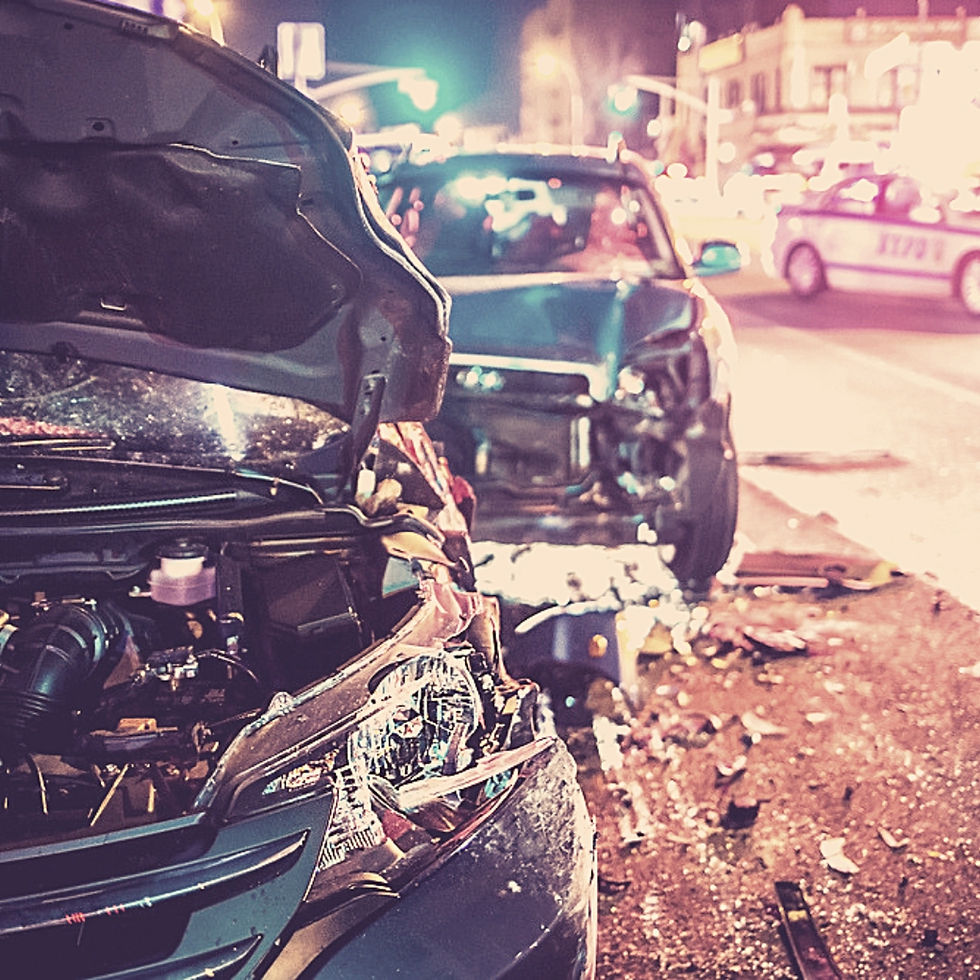The Ethics of Virtual Reality in Crash Reconstruction: Balancing Advancements with Privacy Concerns
- Dr. R. Ryan Rider

- Sep 22, 2023
- 3 min read
Updated: Mar 21, 2025
In recent years, technological advancements have revolutionized various fields, and crash reconstruction is no exception. The incorporation of virtual reality (VR) and 3D scanning technologies into crash investigation and analysis has opened up new avenues for understanding accidents and improving safety measures. However, with these advancements comes a complex web of ethical considerations, centering around privacy and data protection.
In this article, we delve into the ethical implications of utilizing VR and 3D scanning in crash reconstruction, highlighting the need to strike a delicate balance between technological advancements and individuals' privacy concerns.

Advancements in Crash Reconstruction: The Role of VR and 3D Scanning
Traditionally, crash reconstruction has heavily relied on physical evidence, eyewitness accounts, and mathematical calculations to piece together the events leading up to an accident. However, this methodology often falls short in providing a comprehensive understanding of the dynamics and factors involved. This is where virtual reality and 3D scanning technologies have stepped in.
Virtual reality allows investigators to recreate accident scenes in a digital environment, providing a lifelike perspective that aids in analyzing variables such as vehicle speed, impact angles, and the behavior of various elements involved. On the other hand, 3D scanning captures precise measurements of accident scenes, vehicles, and evidence, creating accurate digital representations that can be revisited and examined from different angles. These technologies not only enhance the accuracy of crash reconstruction but also offer a valuable tool for training law enforcement and improving road safety measures.
The Privacy Paradox: Striking the Balance
While the benefits of incorporating VR and 3D scanning into crash reconstruction are evident, ethical concerns arise when considering the privacy of individuals involved in accidents. The capture of detailed data from accident scenes, vehicles, and even personal belongings can potentially infringe upon the privacy rights of victims and bystanders. In an era where data breaches and misuse of personal information are frequent, it becomes imperative to address these concerns in the context of crash reconstruction.
One of the primary concerns is the collection of personally identifiable information. The intricate details captured by 3D scanning technologies might inadvertently reveal private information, such as license plates, personal belongings, or even the identity of individuals present at the scene. This raises questions about the secure storage and responsible handling of such data. Striking a balance between utilizing this data for accurate reconstruction and respecting individuals' privacy rights is a challenge that requires careful consideration.
Informed Consent and Transparency
To navigate the ethical landscape of VR and 3D scanning in crash reconstruction, obtaining informed consent from individuals involved becomes essential. In cases where accident victims are incapacitated or deceased, their next of kin should be adequately informed about the utilization of these technologies and the potential privacy implications. Transparency regarding data collection, storage, and usage is paramount in building trust between law enforcement agencies, technology developers, and the public.
Furthermore, strict regulations and guidelines need to be established to ensure the responsible use of collected data. Data retention periods should be defined, and measures to anonymize personally identifiable information should be implemented whenever possible. Collaborative efforts between technology developers, legal experts, and privacy advocates are crucial in shaping a framework that protects both the accuracy of crash reconstruction and individuals' privacy rights.
The Future of Ethical Crash Reconstruction
As VR and 3D scanning technologies continue to evolve, their integration into crash reconstruction will likely become more prevalent. This calls for a forward-thinking approach to address the ethical considerations that accompany these advancements. Stakeholders must collaborate to develop comprehensive ethical guidelines that govern the use of these technologies in accident investigations.
In the quest for justice and improved road safety, it is essential not to lose sight of the privacy and data protection rights of individuals. The evolution of technology should not come at the cost of personal dignity and privacy. By fostering a dialogue between technology experts, legal professionals, ethicists, and the public, we can navigate this intricate landscape and ensure that the benefits of VR and 3D scanning are harnessed while safeguarding the fundamental values of privacy and consent.
The journey to strike a balance between technological advancements and privacy concerns in crash reconstruction is not a straightforward one. The ethical considerations surrounding the use of virtual reality and 3D scanning technologies are multi-faceted and demand a collaborative effort to address them. As we tread this path, let us remember that each data point captured has a real-world impact on individuals' lives, and it is our collective responsibility to ensure that these impacts are positive and respectful of privacy. In embracing the future of crash reconstruction, let us not forget the values that define our society and ensure that progress is made ethically, responsibly, and with utmost respect for individual rights.




Comments